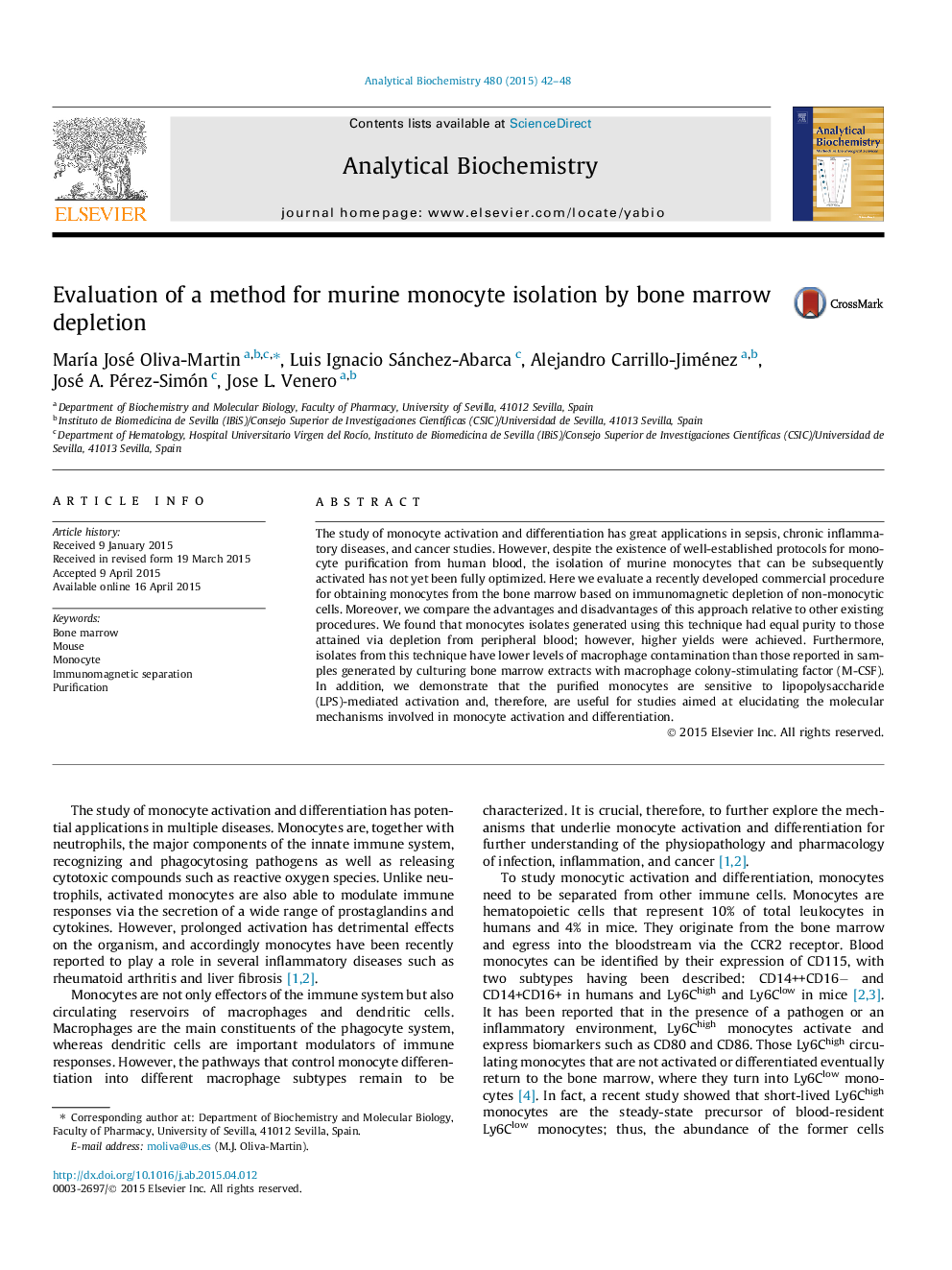| Article ID | Journal | Published Year | Pages | File Type |
|---|---|---|---|---|
| 1173002 | Analytical Biochemistry | 2015 | 7 Pages |
The study of monocyte activation and differentiation has great applications in sepsis, chronic inflammatory diseases, and cancer studies. However, despite the existence of well-established protocols for monocyte purification from human blood, the isolation of murine monocytes that can be subsequently activated has not yet been fully optimized. Here we evaluate a recently developed commercial procedure for obtaining monocytes from the bone marrow based on immunomagnetic depletion of non-monocytic cells. Moreover, we compare the advantages and disadvantages of this approach relative to other existing procedures. We found that monocytes isolates generated using this technique had equal purity to those attained via depletion from peripheral blood; however, higher yields were achieved. Furthermore, isolates from this technique have lower levels of macrophage contamination than those reported in samples generated by culturing bone marrow extracts with macrophage colony-stimulating factor (M-CSF). In addition, we demonstrate that the purified monocytes are sensitive to lipopolysaccharide (LPS)-mediated activation and, therefore, are useful for studies aimed at elucidating the molecular mechanisms involved in monocyte activation and differentiation.
